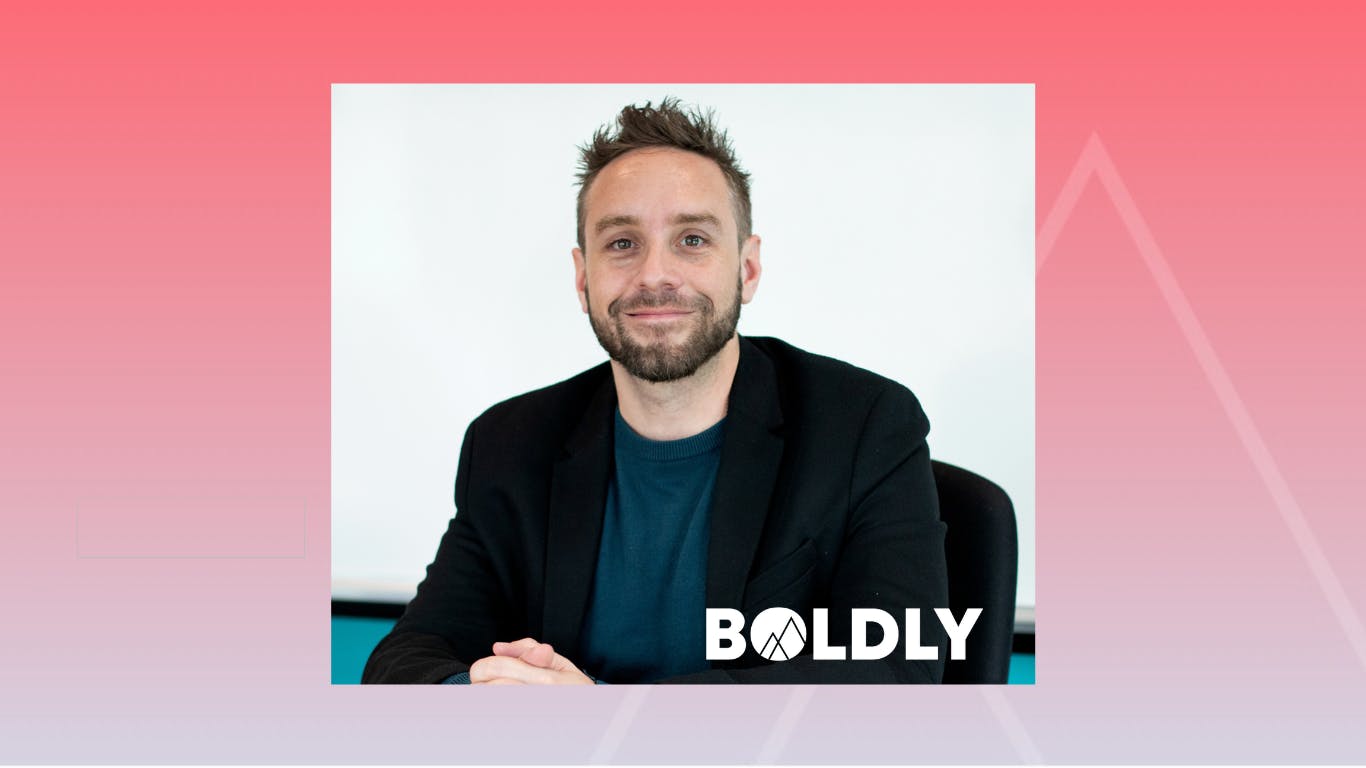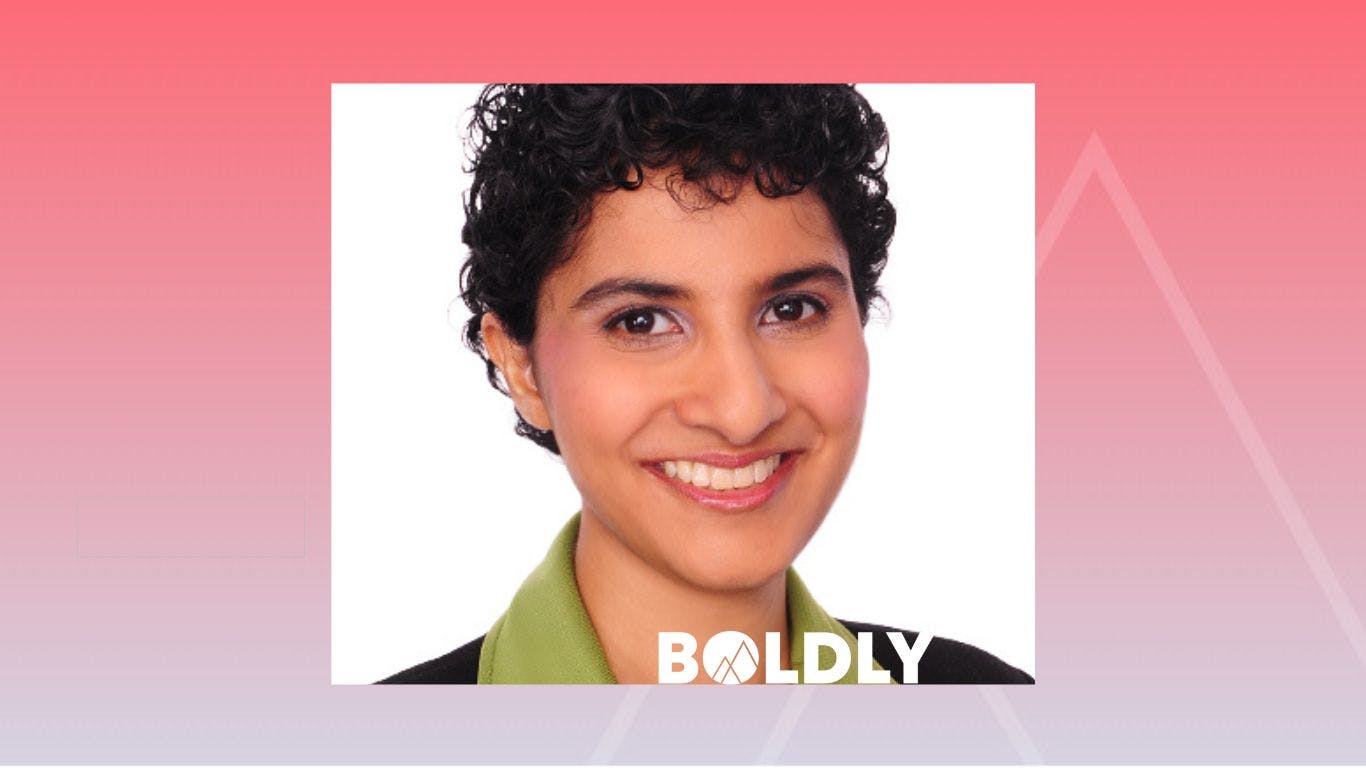Coach Spotlight: Coach Chia-Hsin
Posted by Lisa Singh
Step into this week's BOLDLY Coach Spotlight, Coach Chia-Hsin! Boasting over 15 years of HR experience across the Asia Pacific Region and Japan with expertise in culture and organization development, leadership coaching, and a successful track record in sales and marketing, Coach Chia-Hsin has a tailored approach and bilingual fluency which ensure impactful coaching experiences. Certified by the International Coaching Federation (ICF) and as a Gallup Global Strength Coach, we look forward to hearing about your experiences and insights- thank you for joining us!
1) As someone living in Taiwan, you're surrounded by a blend of traditional and modern influences. Can you share a moment when you felt this unique mix of old and new in your everyday life here?
Taiwan is a small island (36,197 square kilometers) which has a very diverse lifestyle. Food is one thing that you can see the mix of old and new in daily life. For example, yesterday morning for breakfast I visited a small local Taiwanese restaurant and enjoyed having congee with fermented tofu and a type of finely shredded pork, called pork floss which is an old traditional dish here in Taiwan. I then followed my meal with a cup of coffee from Starbucks which has become the modern replacement for tea. It may seem strange for Western people to connect coffee with congee and pork floss, but many Taiwanese enjoy it.
2) That sounds delicious! Do you have a favorite Taiwanese dish or street food that you recommend trying, and what makes it special to you?
Taiwan is well known for food and I have a long list of options to recommend. If I had to choose just one, I would recommend fried glutinous rice balls which we call ‘Tang Yuan’ in Mandarin. Tang yuan is a rice ball made with glutinous rice flour. It can be plain, or have a peanut, sesame, or red bean filling. When cooked, the rice ball has a tender and chewy texture. If the filling is well-made, it will ooze out, making them a delicious delight.
The round shape of these sweet rice ball desserts symbolizes togetherness and family reunion since it is usually eaten together with loved ones. In Taiwanese weddings, people always have Tang Yuan at the end of the party. I remember just last month spending a wonderful afternoon with my family and we all enjoyed having rice balls after our meal. You will love it if you have a chance to give it a try.
3) You have 15 years of extensive experience in HR across the Asia Pacific Region and Japan, was it a natural transition into coaching for you?
When it comes to my transition as a career coach, going with the flow has been the best thing for my life and career transition. When I worked in corporate HR, I had a chance to experience and practice the various perspectives of HR. As time went by, I was able to expand my job scope through these enriching experiences in the Asia Pacific region. I recall one instance in which I was able to support an employee who had anxiety badly, but I helped him to find his strengths, and things started getting better. Therefore, after 15+ years of corporate HR life, I realized that I could help more people as a full-time coach while continuing to demonstrate my passion for helping people both inside and outside the organization. This was a natural process and calling for me to become a full-time coach. Just going with the flow!
4) Given your HR background, how do you believe your experience in areas such as talent development, conflict resolution, and organizational dynamics enhances your effectiveness as a coach?
My diverse HR background has finely tuned my ability to navigate the intricate dynamics of human interaction, making me an adept coach. Whether it's talent development, conflict resolution, or understanding organizational intricacies, I bring a keen awareness to every coaching session. For instance, in a recent coaching engagement, rather than providing solutions, I leveraged my knack for asking powerful questions, fostering a smoother dialogue that unearthed profound insights.
Moreover, my people-oriented nature, inherent to HR roles, enables me to cultivate an environment of trust and safety—a cornerstone of effective coaching. Drawing from my past experiences, I understand the value of creating a space where clients feel empowered to explore their challenges and aspirations openly.
In essence, my journey through HR has equipped me with the tools to not only decipher complex human dynamics but also to inspire transformative growth in others through coaching.
5) Having seen the benefits of coaching for yourself and having background within the HR field, what do you think coaching could offer to HR professionals?
Coaching is a powerful tool that HR could apply to help them deal with different situations such as leadership development, teamwork enhancement, career transition, strategic thinking, difficult conversations, etc. Coaching allows HR to see things from different perspectives and I strongly recommend hiring either an internal or external coach to establish the coaching culture in the company. Once the coaching culture is developed, a meaningful conversation and a growth mindset will also be cultivated at the same time. The atmosphere of the positive cycle will be processed in the organization and you will be amazed to see the result differently.
6) Executive coaching requires a deep understanding of individual and organizational goals. How do you approach the initial assessment phase with your clients to ensure alignment and clarity on objectives?
Executive coaching is not only coaching the individual, but you must consider other stakeholders to ensure the alignment and clarity on objectives. My approach is always to invite the company CEO and HR Head to start the conversation I need to clarify what’s the current situation and challenges and what kind of support they are looking for. Then I will do the same thing with the executive and see if there is any gap between the executive and the CEO. If there are any differences, I will invite three of them to the meeting and clarify the gap before we officially kick off the coaching session.
7) What is your approach to discussing strengths your clients can build upon, and areas where you see opportunities for improvement?
The question is interesting because oftentimes people are seeking improvement on their weaknesses rather than focusing on applying their own strengths. Being a Gallup coach, I use the strengthen report to kick off the conversation if it fits the situation. Let clients focus more on their strengths which increases their confidence level naturally. I also walk through the client’s bottom strengths from the report which the clients may not even be aware of. Applying strength is easier to accept than reviewing the areas for improvement.
8) Which assessment tool do you find most effective in coaching, and why?
There are many great assessment tools such as Gallup, Hogan, Disc, Insight Color, etc. I am a certified Gallup coach so as long as the Gallup report is suitable for my client’s situation, I will recommend it. However, there is no one-size-fits-all assessment tool. To make coaching sessions effective, understanding what resources or support clients need is the key.
9) Executive coaching often involves navigating complex organizational dynamics. Can you share a memorable coaching experience where you helped a client overcome a significant challenge or achieve a breakthrough in their leadership role?
Last month, I coached a female executive in a high-tech company who had been experiencing self-doubt about communication skills. She felt frustrated in her work in terms of understanding and communicating with Generation Z.
To support her in overcoming her self-doubt, we spent quite a bit of time figuring out what is the difference between with Gen Z's communication style and others. Therefore, we focused on the skills she can apply from her past successful experience. By the end of our session, she noted that she had gained more clarity in terms of what she was willing and not willing to do. In addition, the follow-up actions she needs to take just came out automatically as a result of our discussion.
Just as I always do with executive coaching, I follow up with the executive in our next coaching session. She was happy to report that she not only felt more confident in her communication with Gen Z colleagues but also knew how to support her younger subordinates.
10) Lastly, can you share any examples or insights from your experience that highlight the tangible benefits of investing in executive coaching?
Based on my past experience, my executive clients are so-called high-potential employees in the organization. When the company invests the executive coaching, lots of benefits are included, just to name a few here.
Productivity: Whenever the executive coaching is finished, I always see people move to their next milestone quickly. It shows the benefits of coaching that make executive overcome challenges and enhance their confidence level while increasing productivity for the next assignment.
Retention: The cost of executive turnover is huge, If you are willing to invest in executive coaching, people feel appreciated and are willing to stay longer at the company.
Reputation: if the company has an executive coaching program, the reputation of the company will be shared positively around the executive social circle which is valuable beyond the dollar spent on the executive coaching. Birds of a feather flock together and you will attract the right candidates to join the company.
Thank you again Coach Chia-Hsin for joining us for this week's BOLDLY Coach Spotlight and sharing your insights with us! To see Chia-Hsin's full coach profile or book a complimentary 30 minute coach chemistry meeting, and to learn more about the full suite of services offered by BOLDLY visit www.boldly.app or reach out to us at connect@boldly.app
About the Author:
Lisa Singh is an Australian, living with her husband and two small children in the beautiful South Pacific. As Coach Business Partner Lead for BOLDLY, Lisa's team screen and onboard coaches onto our global marketplace, then enable the matching and engagement process so that coaches can do what they do best: deliver exceptional coaching journeys to our coachees. Lisa is a trained nurse, and her role with BOLDLY she loves meeting top coaches and promoting their work for a win: win. Connect with Lisa here



